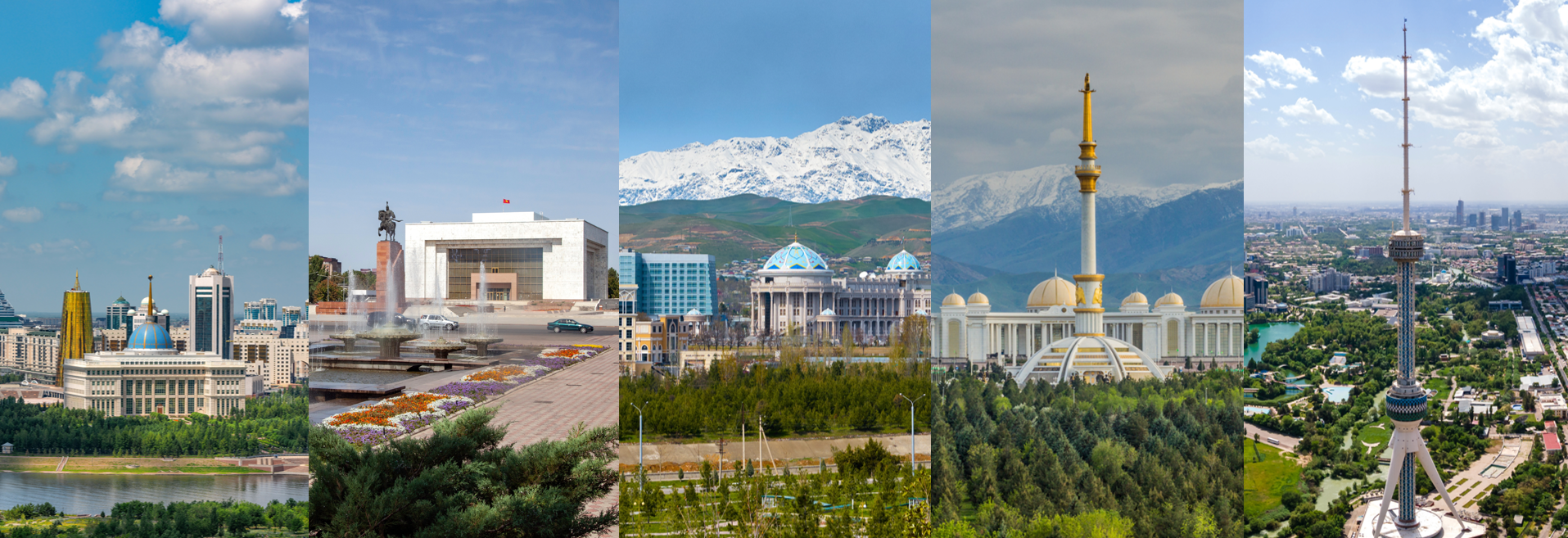Jovanka Porsche: New Central Asia – Vibrant heart of the modern Silk Road
In her commentary for Uzbekistan’s Dunyo Information Agency, Ms. Jovanka Porsche, Founder and Chairwoman of Global Neighbours, offers an analytical perspective on the 7th Consultative Meeting of the Heads of State of Central Asia.
From the Atlantic coast of Europe to the South China Sea, ancient cities and new urban centers are becoming digital hubs. We are seeing rapid growth in connectivity, artificial intelligence, and new forms of energy. We are also witnessing the emergence of new industries and new trade relationships. Right at the center of this transformation is New Central Asia – the vibrant heart of the modern Silk Road.
The Consultative Meeting of the Leaders of Central Asia, held in Tashkent on 15–16 November 2025, represents a milestone in the development of the region. What began as dialogue is quickly growing into new partnerships between institutions. We have moved from talk to action. Many factors have powered this momentum, but one stands out to me – cooperation. Where once we saw disputes and suspicion, now mutual advantages are coming to the fore.
New Central Asia is a compelling idea – a dynamic region driven by shared interests. In fact, the region of New Central Asia is already growing in scope. For example, the Tashkent meeting marked a new phase in Azerbaijan’s involvement, which begins to integrate the South Caucasus into the framework. This reflects the positive spirit of discussions in Washington D.C., between U.S. President Donald Trump and Central Asian leaders. One focus there was the Zangezur corridor, which has the potential to become a vital trade and transport link. With Azerbaijan and Armenia now in discussion about the route, we have the prospect of an even larger Central Asian market area, with enhanced cross-border communication and cooperation.
Opening the corridor would support strategic plans for the China–Kyrgyzstan–Uzbekistan railway. This demonstrates how cooperation in one part of the region can open up extraordinary possibilities for all. Looking ahead, I see remarkable opportunities for new connections between New Central Asia and China, India, and far beyond. Of course, there is also enormous potential to the west, as European institutions and businesses look to invest, operate, import, and outsource to dynamic economies, not least those with young, aspirational populations.
Growing cooperation in the region is already shaping geopolitics. At the Tashkent meeting we saw a joint statement by heads of state in support of the Kyrgyz Republic’s candidacy for a non-permanent seat on the UN Security Council, for the 2027 to 2028 term. It was inspiring to hear the region speak with one voice. The candidacy would strengthen the region’s international standing. It also highlights its ability to present a unified position on global issues.
The steps taken by leaders across Central Asia demonstrate their forward-looking spirit. Governments and companies in the region understand that a stable, reliable environment for investment is key in uncertain times. Leaders across the world are looking beyond one-off projects to strategic relationships that can grow over time.
We at Global Neighbours are excited to witness this extraordinary moment. Furthermore, we will work to make a meaningful contribution to growing regional prosperity and progress. We welcome viewpoints, ideas, and connections from those who share our excitement about the region’s future. Please do not hesitate to contact us.
Here is just one example of how Global Neighbours aims to support progress. Where once caravans traversed the region, rail infrastructure now links Asia and Europe. Our new Tracks to the Future program will bring an international economic forum to each of the region’s countries – by train. Starting in the west of Europe, our train will travel through economies ready to make investments in this fast-emerging new region. Along the way, we will enable politicians, financial and business leaders, and other key players to share their perspectives. These will be high-level discussions – and, where necessary, debate – on how we can unite to grow an even stronger, more prosperous, and more globally connected New Central Asia. As ever, the conversations will focus on cooperation and action.
Tracks to the Future emphasizes that long-term success is a journey. Already, we have seen how new forms of organization are needed to help sustain momentum. That’s why Global Neighbours has played an active role in establishing the new Europe–Central Asia Business Association (ECABA). ECABA brings together companies, investors, and policymakers – from Central Asia and Europe – to promote industrial cooperation, trade, and investment. Its focus areas include innovation, digitalization, and sustainable development.
I would like to end by underlining how important the Tashkent meeting is in the New Central Asia journey. I believe the combination of open dialogue and ambition on display is remarkable. This is an exciting moment for New Central Asia – the beginning of a new era.
The publication can be accessed via the Dunyo Information Agency website: Dunyo
Image – stock.adobe.com
